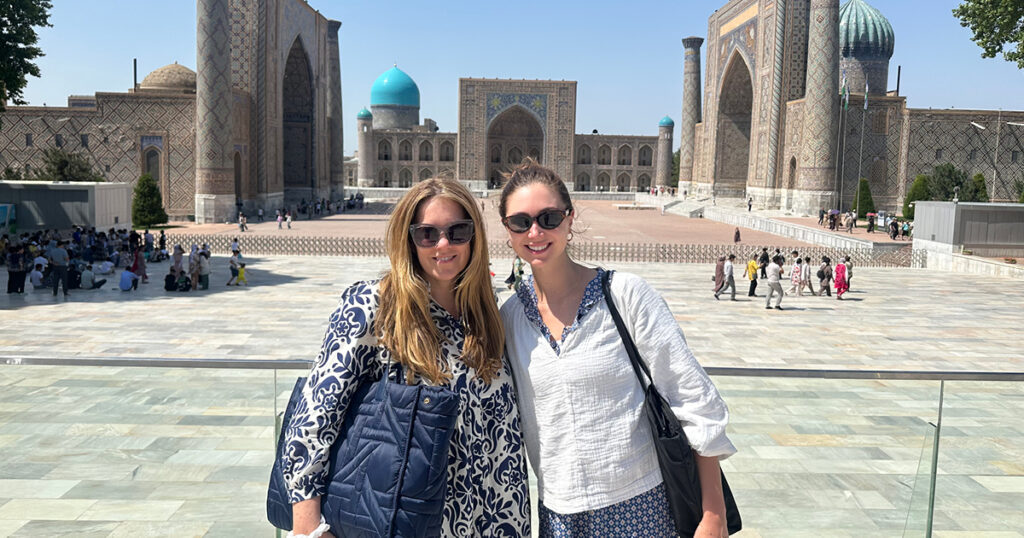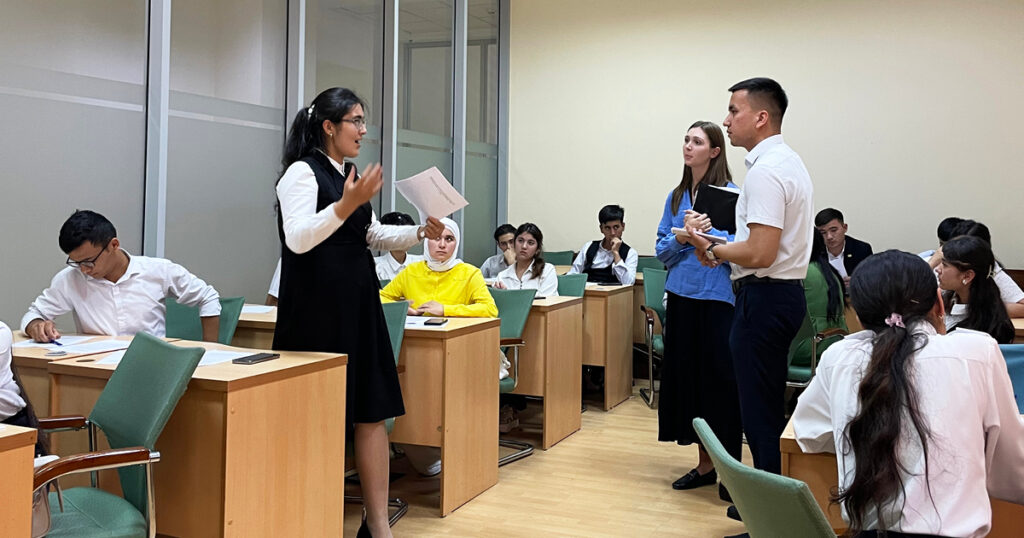
Earlier this summer, New York Law School Assistant Professor of Law Amy Wallace and I traveled to Uzbekistan for the first-ever Uzbekistan Street Law Academy.
At NYLS, our Street Law course sends our students into high school classrooms to serve as teachers—but Street Law Inc. is a global program that provides education to individuals, communities, or organizations on law and government.
For the four days of the Uzbekistan Street Law Academy, 16 different Uzbekistani legal colleges and universities shared their growth, struggles, and hopes for the future of Street Law at their respective schools.
Professor Wallace has worked closely with the Director of the Tashkent State University of Law (TSUL) Street Law Program, Botirjon Kosimov, to create lessons and materials for their law students to teach at schools in the surrounding area. These lessons cover a variety of subjects, including consumer rights, gender equality, and human rights.
In turn, TSUL community members spread the program’s methods and practice to other schools which creates an ecosystem of community and civic engagement. The impact is greater critical thinking and civic responsibility in schools around Uzbekistan.
This growth was on full display at the Uzbekistan Street Law Academy. During this past academic year, the volunteer law students taught at over 200 high schools nationwide. The reach of Street Law had clearly taken hold, and each law school or legal technical school was proud to present how they’ve implemented the program.
During the four days of the academy, we heard from each law school and taught Street Law methodologies. Having participated in our Street Law course here at NYLS, I was curious about how it would translate all the way in Uzbekistan. But even with the language barriers and cultural differences, Street Law ended up looking much the same: The interactive teaching engaged and excited everyone about the material and the next step of teaching it themselves. By the end of the second day at the academy, the rooms were loudly animated, people from all over were becoming friends, and spirited debates ensued. The law students were especially passionate about utilizing new interactive ways of teaching and exploring controversial topics.
The first day of the academy opened with a warm welcome from TSUL and an overview of Street Law’s growth in Uzbekistan. On day two, Professor Wallace taught a lesson on Bloom’s taxonomy—models for organizing learning objectives into degrees of complexity and specificity—and how we can track students’ learning. We then broke out into small group sessions, where I facilitated a lesson with the law students on how to reflect after teaching.
On day three, Professor Frances Ridout of the Queen Mary University School of Law in London, United Kingdom—who joined us on the trip—taught a lesson to all staff and students about different interactive teaching methods, and I led a lesson for law students on the importance of teamwork while teaching. Professor Andrew Perkins of the Truman Bodden Law School in George Town, Cayman Islands—who also joined—taught the professors a lesson on supervision strategies.
On our last day, each school used their new knowledge to create their own lesson implementing Bloom’s taxonomy and various interactive methodologies. Each school conducted a “teach-back,” where they taught their lesson to us and four other schools as if we were their high school students. Once the lesson finished, we provided feedback. By the end of the fourth day, each school had in-hand an almost complete lesson they could use in the future.
After conducting the student sessions and witnessing the transformation of each school, I am confident that Street Law will only continue to flourish nation-wide in Uzbekistan.


